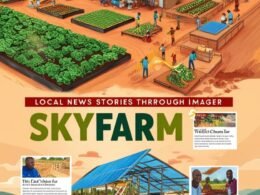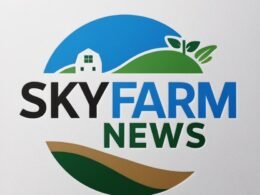Mother language is the language that a person has been exposed to from birth or within a critical period of life. It is known that children learn better and faster in a language they can understand. It is also known that it is easier to transfer knowledge acquired in the first language to a second one than the reverse.
In Ghana, the Indigenous languages were used for centuries, if not millennia before the advent of a more developed English
The article discusses the potential for further developing Ghanaian languages. It was written by Gabriel Adukpo, a freelance writer.
TOWARDS FURTHER DEVELOPMENT OF GHANAIAN LANGUAGES
BY GABRIEL ADUKPO, FREELANCE WRITER
EVERY Ghanaian is born into a language community. One may choose to call it mother language, mother tongue, native language, first language, or any other term. The bottom line is that the mother tongue is the language a person has grown up speaking from early childhood.
A person is considered an authority on the native language by the natural acquisition process regarding the language as opposed to having learned it later in life. The person does not necessarily know every grammatical rule of the language, but they will have a good intuition of the rules through experience. He or she can speak and partake in discussions freely, fluently, and spontaneously in the said language.
Children brought up speaking more than one language can have more than one native language and can be bilingual or multilingual. Some languages like pidgin and sign language are non-indigenous but developed under certain circumstances.
Ghana is a multilingual country in which about eighty languages are spoken. These indigenous languages determine the socio-cultural identity, integration, communication, education, and development of the various ethnic groups. The official language in Ghana is English. Besides, about one dozen local languages are government-sponsored.
Some of these languages written and taught in schools are the various dialects of Twi, namely Akuapem, Asante, Mfantse, and Bono. Others are Dagaare, Dagbani, Dangme, Ewe, Ga, Gonja, Kasem and Nzema. Also included is Hausa, which is spoken mostly in Muslim communities in the country, even though it is not a Ghanaian language. Out of the lot, only Twi, Ewe, Ga, and Hausa have found their way into the digital world of Google.
One may ask: How come our local languages have seen little development over the years as compared with English or other international languages? The reasons are not far-fetched.
First, English being the language of our former colonial power is the lingua franca. Every official business in administration, governance, judiciary, education, and international relations is conducted in the English language. The excuse is that there is no single local language that is understood and spoken by all Ghanaians. However, in our neighborhood Nigeria, people are of the view that the average citizen understands English.
Secondly, there is inconsistency in the use of mother languages in our educational system, especially in lower primary. Sometimes, the medium of instruction is strictly Ghanaian language in lower primary. While it is occasionally mixed, private schools could go all out to use English as the medium of instruction in lower primary. There is evidence that children learn best in their mother tongues, and a stronger proficiency in the first language leads to greater performance in a second. Despite this, we tend to measure our children’s academic achievement by their performance in the English language.
A mini survey that sought reasons why some parents speak English to their children at home came out with responses such as:
- Help their children cope with the medium of instruction at school
- Help them cope with those who interact only in the language
- English is a commercial language. So, they as parents help the children to know it well
- Parents have not come to understand African identity
- Parents believe that a child picking English will help them perform academically
- Parents believe children do well in society with fluency in English when they grow up
Other reasons for little development are a limited number of local language textbooks and Ghanaian language teachers. As a result, fewer periods are allotted to Ghanaian languages on the school timetable where the vernacular is taught.
Nonetheless, performance in the local languages is not all gloom. Half of the colleagues contacted said they could read and write well in their mother tongues. A third could not do well, and the rest were not literate at all in any Ghanaian language.
That a sizeable proportion of people cannot read and write their language means that adult education practitioners in literacy need to re-target their focus. Literacy workers should widen the net to include people who want to acquire new skills in old age even though they are literate in English.
Fortunately, all is not lost, as we have the potential to develop the Ghanaian languages further. The good news is that the University of Education, Winneba, is capable of training highly motivated teachers for the colleges of education and senior high schools. The Universities of Ghana, Legon, and Cape Coast also have the right institutes and departments for Ghanaian language development.
The Ghana Institute of Linguistics, Literacy, and Bible Translation has been carrying out community-based literacy programs in the northern part of the country. This Christian non-governmental and mission organization did the first complete New Testament translation in Kusaal in 1976 and now works in about thirty-four languages.
We also need to empower the Bureau of Ghanaian Languages to deliver on its mandate. The bureau has professional language experts and with enough funding, they can collaborate with authors to produce textbooks and other teaching and learning materials for our schools and adult learners. Meanwhile, many radio stations are also promoting our local languages.
Furthermore, opportunities exist at the United Nations Educational, Scientific, and Cultural Organization (UNESCO) that promote linguistic diversity and multilingual education. Unlike some parts of the world where indigenous languages are disappearing, Ghanaian languages are vibrant and spoken everywhere without restriction. We only need to take pragmatic actions to develop our mother languages further.
It therefore makes sense to review our language education policy and change our attitude towards local languages. If everyone could learn another Ghanaian language and every scholar could read and write one Ghanaian language, we would be making headway in preserving the country’s diverse and rich cultural heritage.
On speaking a language other than one’s own, a third in the mini-survey could speak two while a third could speak none. The rest could speak one and three other languages in equal proportions.
In our student days at the University of Ghana, Legon, we selected a different Ghanaian language as part of African Studies. Managers of the Complementary Education Agency could apply the same model in the country at large.
Ultimately, it would be laudable to see mathematics and science textbooks in the Ghanaian languages.
END
Contributed by Gabriel Adukpo, Freelance Writer
Telephone: +233 203 890 113 / +233 598 031 861
Email: gyaduk@gmail.com









